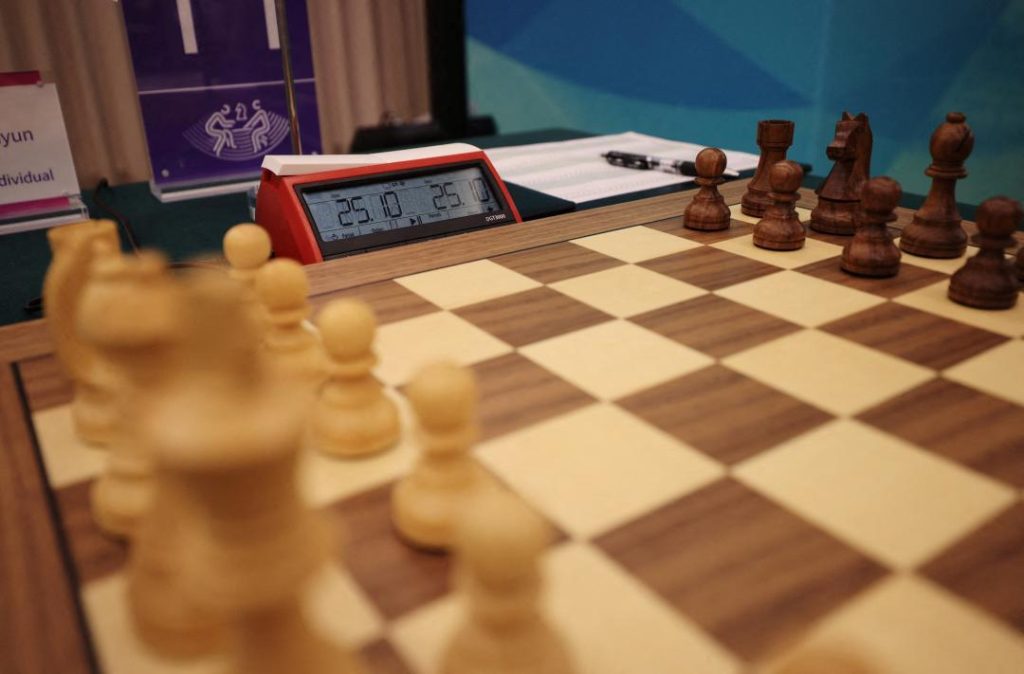
OpenAI o3 Defeats Grok 4 in Chess, Carlsen Says “Grok Learnt Theory & Knows Nothing Else”
The world of chess witnessed a thrilling event recently, as OpenAI’s o3 defeated Elon Musk-owned xAI’s Grok 4 during the AI Chess Exhibition Tournament 2025. The match ended with a convincing 4-0 victory for o3, leaving many stunned and impressed by its performance. But what caught everyone’s attention was the reaction of world number one chess player Magnus Carlsen, who was present at the event.
During the match, Carlsen couldn’t help but notice Grok 4’s playing style, which he described as “learnt theory and literally knows nothing else”. The comment was made after Grok 4 made a move that seemed to be based on memorized theory rather than actual understanding of the game. Carlsen’s remark has sparked a heated debate among chess enthusiasts and AI experts, with many wondering what he meant by “learnt theory”.
For those who may not be familiar, Grok 4 is an AI developed by xAI, a company founded by Elon Musk. The AI is designed to learn and improve through experience, and its primary goal is to become a world-class chess player. On the other hand, OpenAI’s o3 is an AI designed to play complex games like chess, Go, and poker. o3 uses a combination of machine learning and human expertise to improve its playing skills.
The chess exhibition tournament was a closely watched event, with many top players and experts attending. The tournament featured a series of matches between o3 and other top-ranked AIs, including o4 mini and Kimi K2 instruct. o3 emerged victorious in all the matches, displaying its impressive skills and dominating the competition.
So, what does Carlsen’s comment mean? Simply put, it means that Grok 4’s playing style is based on memorized theory rather than actual understanding of the game. In other words, Grok 4 is able to recall and apply chess strategies and tactics that it has learned through its training data, but it does not have the ability to think critically or come up with new and innovative moves.
This is not uncommon in AI systems, as they often rely on their training data to make decisions. However, in chess, this can be a significant limitation, as the game requires a deep understanding of strategy and tactics. Carlsen’s comment suggests that Grok 4 is unable to think outside the box or come up with creative solutions to problems, which is a crucial aspect of the game.
On the other hand, o3’s performance in the tournament suggests that it is able to think critically and come up with innovative moves. o3’s victory over o4 mini and Kimi K2 instruct, both of which are top-ranked AIs, demonstrates its ability to adapt to different playing styles and situations.
The match between o3 and Grok 4 was also notable for its lack of drama. Unlike human chess matches, which often feature intense battles and comebacks, the match between o3 and Grok 4 was a one-sided affair. o3 dominated the match from start to finish, with Grok 4 unable to mount a significant challenge.
The outcome of the match has sparked a debate among AI experts and chess enthusiasts about the future of AI in chess. Some argue that AI systems like Grok 4 are still limited by their reliance on memorized theory, while others believe that they have the potential to surpass human players.
Carlsen’s comment has also sparked a debate about the role of theory in chess. Some argue that theory is essential to understanding the game, while others believe that it can be a crutch and limit creativity and innovation.
In conclusion, the match between OpenAI’s o3 and Elon Musk-owned xAI’s Grok 4 was a significant event in the world of chess. o3’s impressive victory and Carlsen’s comment have sparked a debate about the role of theory in chess and the limitations of AI systems. As AI continues to evolve and improve, it will be interesting to see how it impacts the game of chess and whether it will be able to surpass human players.






